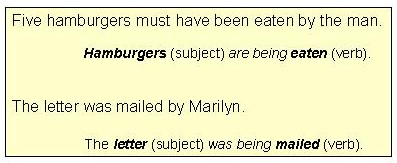One can
change the normal word order of many active sentences (those with a direct object) so that the subject is no longer active,
but is, instead, being acted upon by the verb - or passive.
About Me
Persuading and Encouraging
Persuading is an
expression to persuade someone. So, someone want to do something as like as
persuader’s request.
Expressions of persuading :
Are you really sure you can’t/couldn’t...?
Don’t be so silly!
I really think it would be a pity if we didn’t...
Are you quite sure you won’t consider...?
Buy me this one, mom, please ?
Asking About Possibilities, Expressing Curiosity and Desire, Expressing Views (english task part 12)
Direct
Speech / Quoted Speech
Indirect speech (sometimes called reported speech), doesn't use
quotation marks to enclose what the person said and it doesn't have to be word
for word.
Discussion Text
Discussion is a text which presents a problematic discourse.
This problem will be discussed from
different points
of view. It presents pro and contra opinion on certain issue. The purpose of a discussion text is to present arguments and
information from differing viewpoints.
Discussion
texts are usually written in the present tense.
Points to
check:
ü
Have
you been fair to both sides?
ü
Have
you supported your views with reasons ande vidence?
ü In your conclusion, have you given a reason
for what you have decided?
NARRATIVE TEXT
Narrative text is a text which contains about story
(fiction/non fiction/tales/folktales/fables/myths/epic) and its plot consists
of climax of the story (complication) then followed by the resolution.
The narrative text short story is telling of a story or an account of
a sequence of events. One of the four traditional forms of composition (along
with description, exposition, and persuasion). Narration differs from
exposition, which can also relate a sequence of events, in that narration need
not be factual and may be written from the perspective of a character in the
text.
BUSINESS LETTER
Parts of a Business
Letter
This resource is organized in the order in which you should write
a business letter, starting with the sender's address if the letter is not
written on letterhead.
Sender's Address
The sender's address usually is included in letterhead. If you are
not using letterhead, include the sender's address at the top of the letter one
line above the date.
EXPLANATION TEXT
Definition
and purposes of Explanation
Explanation is a text which tells processes relating to forming of natural, social, scientific and cultural phenomena. Generally the purpose of an explanation text is explaining how something forms or why the thing happens. So when we read an explanation text, the text will cover the answer of "how" or "why" relating to a thing or a phenomenon. It is often found in science, geography and history text books.
Generic structure of Explanation
General statement; stating the pheno
Explanation is a text which tells processes relating to forming of natural, social, scientific and cultural phenomena. Generally the purpose of an explanation text is explaining how something forms or why the thing happens. So when we read an explanation text, the text will cover the answer of "how" or "why" relating to a thing or a phenomenon. It is often found in science, geography and history text books.
Generic structure of Explanation
General statement; stating the pheno
COMPLAINING
Complaints are expressions of "displeasure or
annoyance" in response to an action that is seen by the speaker as
unfavorable. Suppose you want to complain about the pizza you have just ordered
because it's too salty, what are the expressions needed to express and respond
to complaints?
Making a Complaint:
Here are useful expressions you can use when complaining:
·
I’m afraid I have to make a serious complaint.
·
Look, I’m sorry to trouble you, but….
Archives
-
▼
2012
(16)
-
▼
November
(10)
- Passive Sentence (english task part 14)
- Persuading, Encouraging, Preventing Someone From D...
- Asking About Possibilities, Expressing Curiosity a...
- Direct Speech and Indirect Speech (english task pa...
- Discussion Text (english task part 10)
- Narrative Text (english task part 9)
- Contrastive Conjunction and Modal Perfect (english...
- Business Letter (english task part 7)
- Explanation Text (english task part 6)
- Complaining and Giving Construction (english task ...
-
▼
November
(10)


